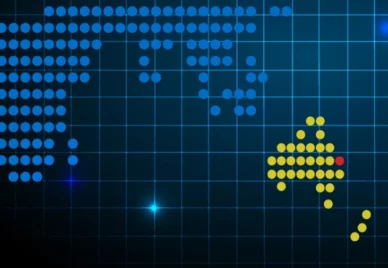
2024 eResearch Australasia Conference
Go to partner eventabout 2024 eResearch Australasia Conference
Are you confused by data versioning? Solve it by accessing and using solutions developed by the Research Data Alliance (RDA) Data Versioning Working Group (WG).
The RDA offers a great opportunity for Australians to work with other leaders and experts from a multitude of countries to influence solutions applicable to the research community. The Australian Research Data Commons (ARDC) has actively contributed to RDA since before its official launch in 2013 and now works alongside members of several Australian institutions, serving on RDA governance bodies such as the RDA Council or the RDA Technical Advisory Board, or operating as co-chairs of Interest and Working Groups.
The establishment and participation in these groups are essential to tapping into the brain power of the world’s experts in order to tackle current sharing and data reusability challenges.
Dr Jens Klump is the Geoscience Analytics Team Leader at CSIRO and co-chair, together with Martha Maiden Award winner Dr Lesley Wyborn, of the RDA’s Data Versioning WG. After working with Dr Wyborn on research data versioning issues in big data, Dr Klump knew more was needed to help researchers systematically version data better.
“Within the collaborative research infrastructures in Australia, data are held at different locations, sometimes being transformed into different formats. Here, questions arise about what ‘version’ means, in which way ‘versions’ differ from one another, and how a ‘version’ relates to the original work,” Dr Klump said.
The Data Versioning WG recently produced their final report, outlining new and improved principles and best practices for versioning of research data. The two key recommendations for data versioning are:
Dr Klump says the RDA provides many chances to meet people, either in person at plenaries or online through other media.
“RDA gives you plenty of opportunities to meet people with a very high level of expertise…who are working on questions [or issues] that I might also have,” Dr Klump said.
RDA plenaries bring together a unique community of data scientists, librarians, computer scientists, and domain researchers to help create tangible deliverables that improve data sharing across disciplines, technologies, and countries.
The next plenary is hosted by Australia’s national science agency, CSIRO, with the support of the ARDC. You can still register for the RDA Plenary 15 Data for Real-World Impact in Melbourne, Australia 18–20 March 2020.